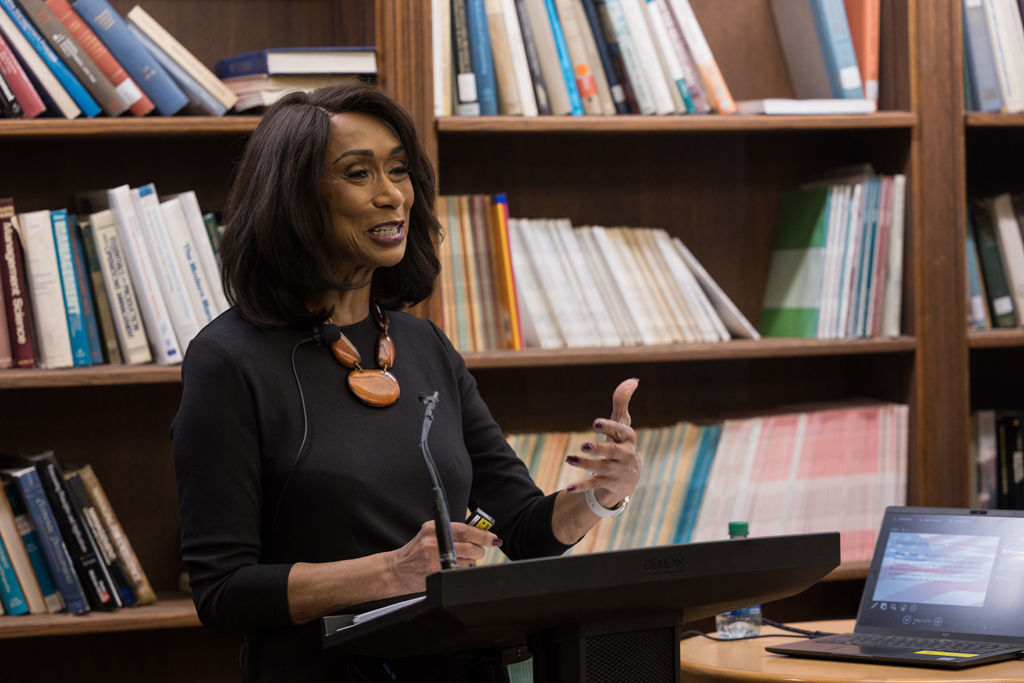Progress, Equity, and Advocacy
According to former president of the League of Women Voters Carolyn Jefferson-Jenkins, everyone can make a difference in the world. “While the things that I do may be important, I think what is more important is who I am and what I believe, and I believe in the power that we each have to make a difference.”
Jefferson-Jenkins became the first person of color to serve as president of the U.S. League of Women Voters in 1998 and is the author of several books, including One Man, One Vote: The History of the African American Vote in the United States and The Untold Story of Women of Color in the League of Women Voters. Jefferson-Jenkins implored the audience to use their judgment while listening to others. “I do not represent all Black people,” Jefferson-Jenkins said. “I do not represent all women. No one person represents all, and we must remember that as we listen to people, to also give weight to what they say.”
Jefferson-Jenkins said progress toward increasing rights for women of color has slowed in recent years. “I would submit to you that after two centuries, the U.S. Constitution is showing its age,” Jefferson-Jenkins said. “And once again, we are beginning to question the need for makeover and renewal.” Displaying a series of slides showing transformational moments in American history that led to increased equity for marginalized groups, Jefferson-Jenkins emphasized the importance of continuing advocacy even after major improvements are made. “Having a seat at the table is fine,” she said, “but having a voice at the table is what is required.”
According to Jefferson-Jenkins, sacrifices must be made for notable change to occur. “You can’t break the glass ceiling without scars,” she said. Jefferson-Jenkins said her grandmother—born in 1903—largely influenced her interest and passion for advocacy, “My grandmother couldn’t vote as a citizen until she was 60 years old,” Jefferson-Jenkins said.
On her path to becoming the first woman of color to serve as president of the League of Women Voters of the United States, Jefferson-Jenkins said she made many sacrifices and endured numerous microaggressions. As president, the pressure was enormous, as many looked to her to set forth change and equity for all in the League, she said. “I do not speak for all Black people,” she said. “That should not be my sole burden. Everybody at that table is responsible for ensuring things happen.”
Concluding her talk, Jefferson-Jenkins reminded the audience that each generation has a unique role in promoting long-term change. “My grandma’s generation is the Generation of Hope,” Jefferson-Jenkins said. My parents’ is the Generation of Promise. My generation, the Boomers, is the Generation of Commitment. And finally, the future generations—your generation—is the Generation of Possibilities.”
Adapted from The Heights article by Ashna Potluri '27




